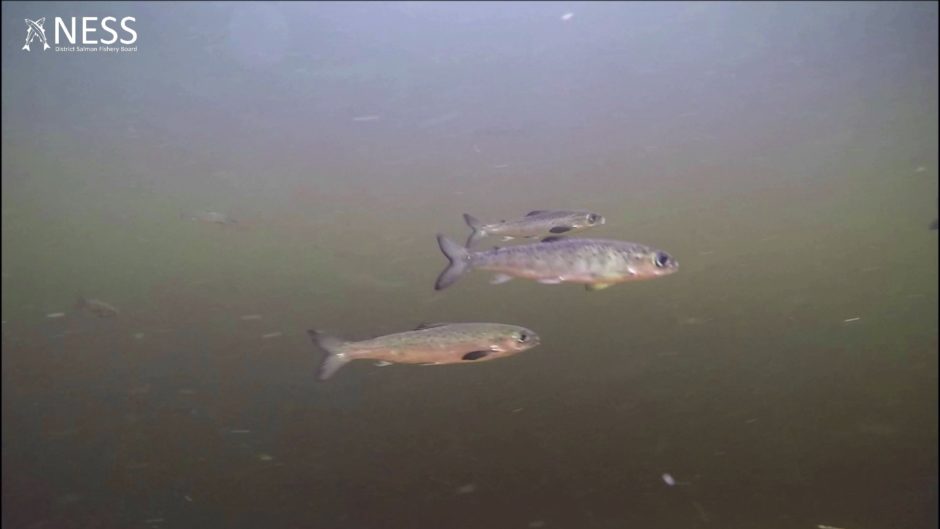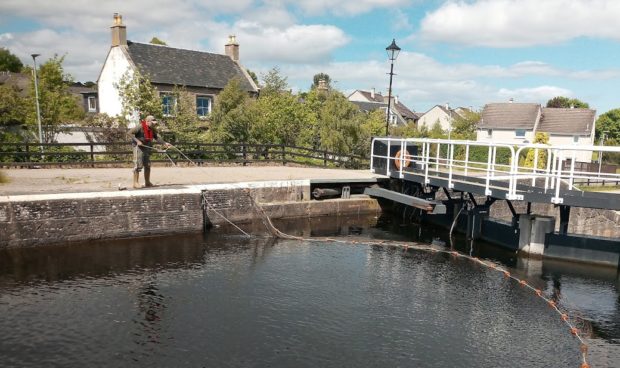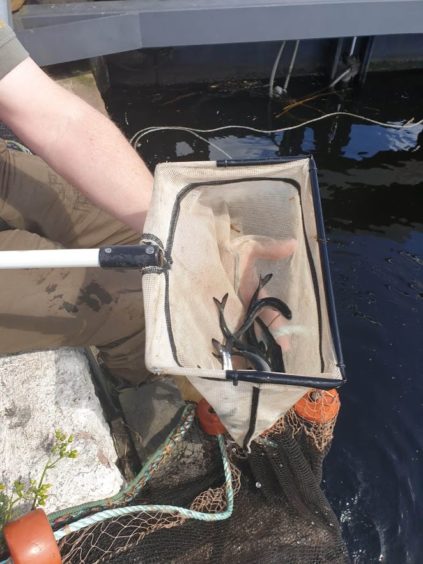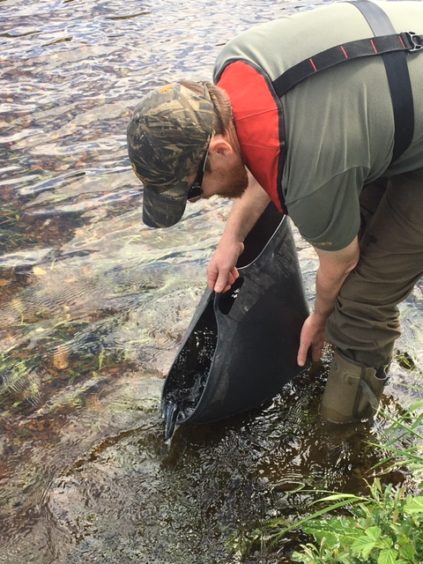A massive rescue operation is under way in Inverness to help thousands of young salmon trapped in the Caledonian Canal system, closed during lockdown.
The fish, known as smolts at this stage in their lives, are heading in shoals towards the sea – but now find themselves trapped between Dochgarroch and Muirtown Basin.

The clarity of the canal water during lock-down has helped highlight the extent of the problem.
Ness District Salmon Fishery Board and Scottish Canals are working together to help release the smolts, and encourage them downstream into the sea.
Scottish Canals is opening the sluice gates at the locks in Muirtown and Clachnaharry twice daily to let the fish through, while the Ness board team is netting the top chamber at Muirtown locks to capture and relocate them.
It’s a difficult operation due to the size and depth of the canal at this point, but so far more than 300 trapped smolts have been captured and released into the Ness at Bught Park
Chris Conroy, director of the Ness board said: “Between March and June each year the largest juvenile salmon, known as parr, drift downstream in shoals towards the sea. During this journey their bodies lengthen, their fins darken and they become more silvery in colour, and the fish then become known as smolts.
“But the canal and the rivers of the Ness system are interlinked in a number of places, creating bottlenecks where smolts may drift into the canal mouth rather than continuing down the river.”
A series of ‘smolt passes’ was built in 1869 to provide a route for trapped fish to escape back into the river, but a significant number are still entering the canal system.
It’s a race against time to get them out, as the fish may only have a week when they are ready and must enter the sea.
Mr Conroy said: “Young salmon missing this window won’t make it to their ocean feeding grounds as far away as Greenland. Their migration being obstructed also leaves them open to attack from birds, other fish and mammals.
“It’s a huge issue for the future of salmon and the angling industry which makes a vital contribution to the local economy.”
A Scottish Canals spokesperson said: “We recognise the environmental, economic and social importance of salmon and other fish populations in the River Ness area.
“When the current situation eases, Scottish Canals looks forward to working in partnership with the relevant parties to find a long term, operationally effective, safe and affordable solution to manage smolt movements.”


